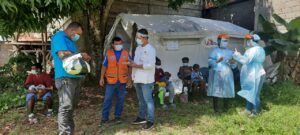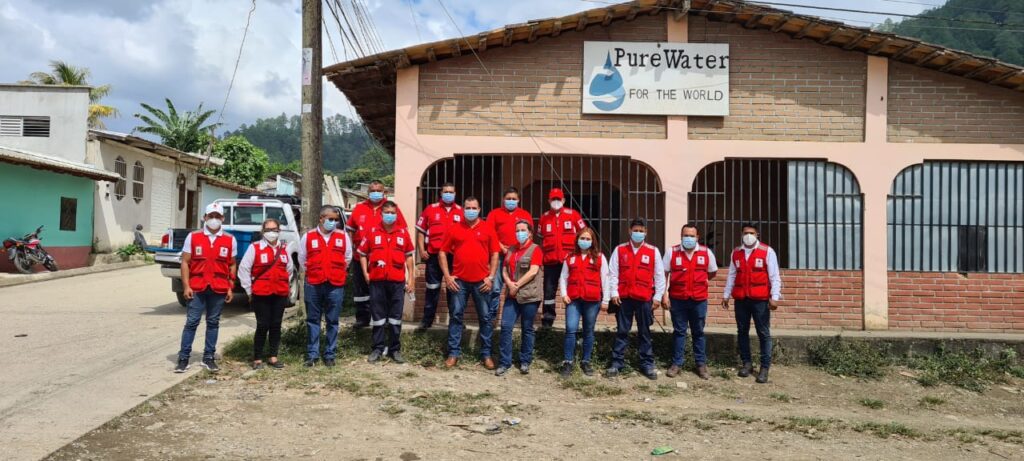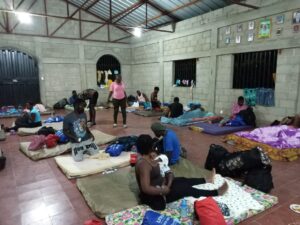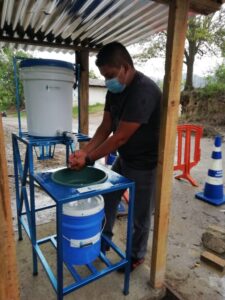Honduras has been characterized as a migratory passage country for people traveling from different countries within Central America, and, to a lesser extent, for people traveling from the Caribbean and Africa.
 In November 2020, as a result of the socioeconomic impacts of COVID19 worldwide and after the change in immigration policy in the United States, migration to the north of the American continent increased notably. This increase has included people migrating from Haiti, Cuba, Venezuela and several African countries (ie. Togo, Mauritania), as well as Yemen. Many of these migrants where temporarily residing in Chile and Brazil, which is where their journey north began.
In November 2020, as a result of the socioeconomic impacts of COVID19 worldwide and after the change in immigration policy in the United States, migration to the north of the American continent increased notably. This increase has included people migrating from Haiti, Cuba, Venezuela and several African countries (ie. Togo, Mauritania), as well as Yemen. Many of these migrants where temporarily residing in Chile and Brazil, which is where their journey north began.
Exact figures on the number of transcontinental migrants are unknown. However, according to the figures from the fees collected by migration, from November to April 2021, more than 2,000 people have entered the Municipality of Trojes, Honduras through the Nicaraguan border, a majority of whom are from Haiti. The expectation is that 1,000s more will pass through in the coming days.
Lacking adequate facilities to accommodate the unexpected and large number of migrants, UNICEF Honduras reached out to PWW with a request to partner and help support the migrating population, especially women and children, by providing safe water, sanitation and handwashing facilities, as well as essential hygiene supplies, at designated migrant shelters in the municipalities of Trojes, Danli and Yuscaran, located in the El Paraiso region.
In April, an inter-sectoral mission was established between UNICEF, Red Cross, and Pure Water for the World to perform a rapid evaluation of the situation. During this trip, the group met with local Trojes authorities and organizations, including the Catholic Church, Secretary of Education and other church groups, to identify problems related to WASH in the places identified as migrant shelters. The group provided initial support of the migrants, with hygiene kits, clean water and other basic necessities.

With WASH needs defined, PWW became the leading organization, funded by UNICEF, to implement the WASH solutions.
 500 hygiene kits where distributed, benefiting 500 adults and 76 children (192 women, 278 men, 49 girls and 57 boys) across the three municipalities
500 hygiene kits where distributed, benefiting 500 adults and 76 children (192 women, 278 men, 49 girls and 57 boys) across the three municipalities- 5 metal latrines where installed, 2 portable latrines in one of the shelters, 2 water storage tanks, clean water filters, cleaning materials for the shelters, biosecurity materials, showers where delivered in four days in Trojes.
- 5 metal latrines where installed, including 2 portable latrines in one of the shelters, as well as showers
- Repairs of toilets, showers, and bathroom doors in two of the shelters in Danli where completed.

Work continues on a contingency plan for WASH and migration in El Paraiso, including WASH in 4 schools, WASH in one healthcare center, and the installation and training of 15 foot pedal sinks (see photo). PWW will also complete the rehabilitation of bathrooms in the Migration House in Finca La Esperanza, Yuscaran. The work is expected to be completed by the end of this year.
This emergency response effort will not only support the health of the migrants passing through Honduras, but it will also protect the safety and sanitation of the Trojes, Danli and Yuscaran communities.
